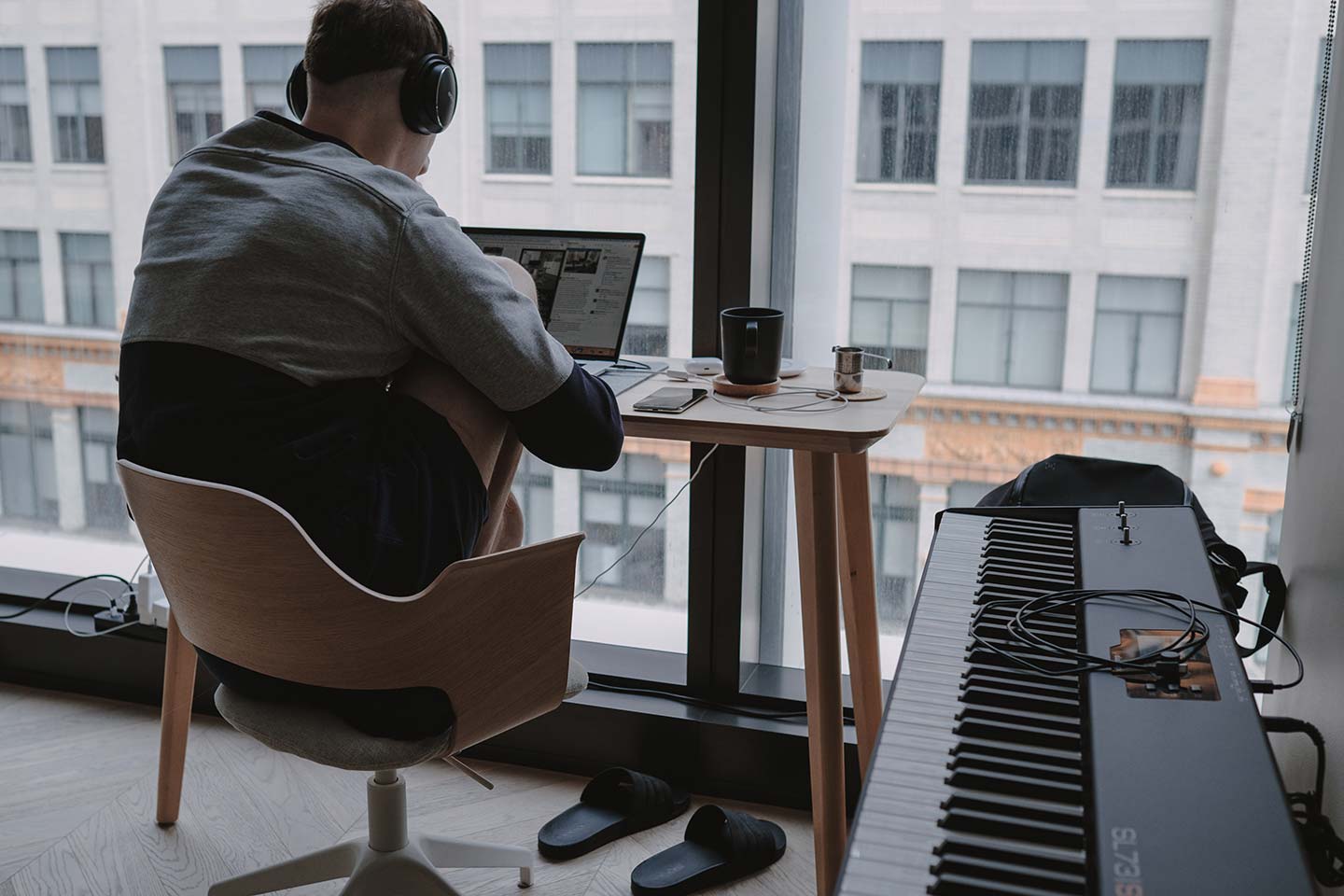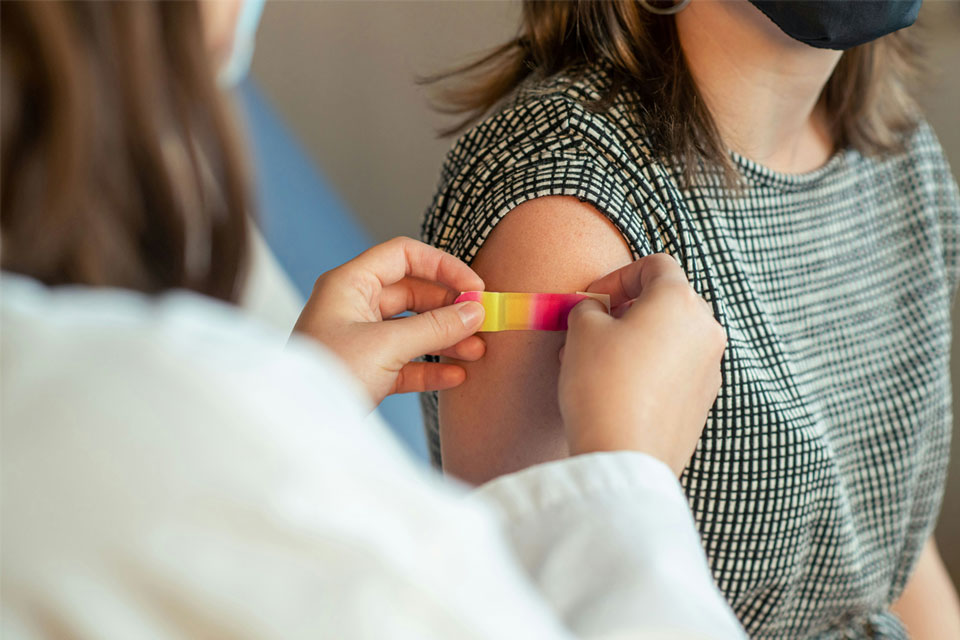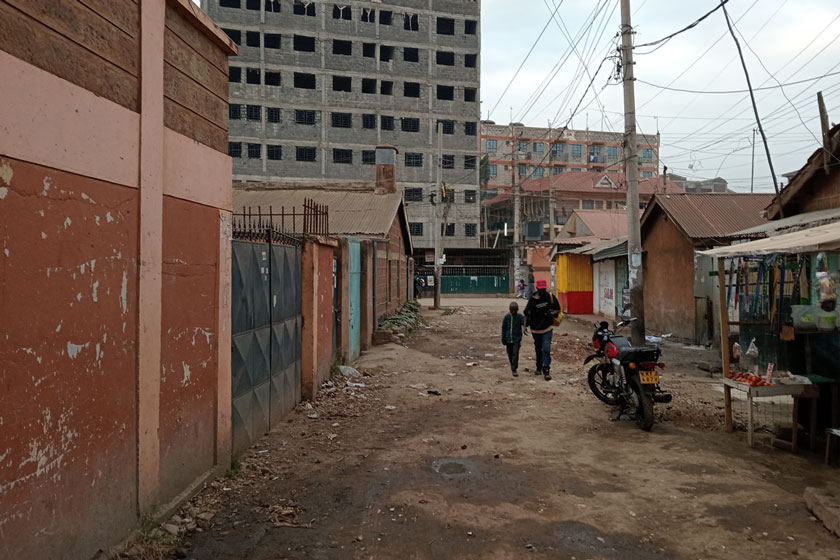Why lockdown can be bad for your immune system - and what to do about it
Lockdowns are an effective way of reducing COVID-19 infections, but they could take a more general toll on our health if we allow them to.
- 13 January 2021
- 6 min read
- by Linda Geddes

For nearly a year, a sizable chunk of the world’s population has spent a significant amount of time shuttered inside their homes, venturing outdoors only for essential supplies or certain types of work. Staying at home is a good way of limiting our exposure to coronavirus, but it could leave us more vulnerable to other infections if we don’t take steps to reduce stress, protect our sleep, and ensure we’re getting the nutrients and exercise we need to stay healthy.
Financial worries, difficulties balancing work and childcare, or health concerns, aren’t easily solved, but it is important to find ways of relaxing, as well as avoiding electronic screens in the run-up to bed.
The cells of our immune system are one of our main lines of defence against infections, protecting us from invaders, such as viruses and bacteria, by engulfing them, or by producing chemicals or antibodies that neutralise or destroy them. These immune cells weaken as we get older, which is a key reason why people over the age of 70 are more vulnerable to diseases like COVID-19 and influenza. But this decline can also be accelerated by factors like physical inactivity, smoking or consistently poor sleep, meaning our immune age isn’t necessarily the same as our chronological age. So, although there’s little we can do about getting older, there are ways of slowing down the decline of our immune systems and shoring up our defences against infectious agents.
Exercise
Various studies have suggested that taking regular exercise reduces our susceptibility to viral infections like influenza and the common cold, as well as boosting our immune response to vaccination.
One type of immune cell that seems particularly receptive to exercise are neutrophils – these are key components of the innate immune system, which provide the body’s first line of defence against infections. When neutrophils detect an invader, they squeeze themselves out of the bloodstream and move towards it through a process called chemotaxis, and then either engulf the pathogen or destroy it by spewing out chemicals. As we age, the navigation systems of neutrophils can go awry, meaning they’re less effective at hunting down invaders. It also makes them more prone to engaging in ‘friendly fire’ – contributing to chronic low-grade inflammation or ‘inflammaging’ which has been linked to numerous age-related diseases including heart disease and type 2 diabetes.
Exercise appears to counter these effects: one study found that the neutrophils of older adults who routinely walked at least 10,000 steps a day were as effective as those of young adults. Exercise also boosts the number of immune T cells, which play a major role in detecting and destroying viruses.
Have you read?
Get outdoors
Although there’s no shortage of at-home online workouts to keep you fit during lockdown, you should endeavour to take your exercise outdoors, where possible. There are several reasons why this is beneficial for our immune systems. The first is vitamin D, which not only strengthens our bones and teeth, but is used by various immune cells. People with low levels of vitamin D are at greater risk of viral respiratory tract infections such as the common cold, and researchers are also investigating whether vitamin D supplements could help protect against severe COVID-19 disease – at least in people with vitamin D deficiency. The main way we get vitamin D is by exposing our skin to the ultraviolet B (UVB) rays in sunlight – although at latitudes above 37°, including anywhere north of San Francisco, the Mediterranean Sea or Seoul, or in parts of New Zealand, Chile and Argentina, the amount of vitamin D that we can synthesise in winter is negligible. This means we should boost our intake through eating vitamin D-rich foods like oily fish or take supplements instead.
Exposure to natural light may benefit our immune systems in other ways too. Circadian rhythms are close to 24-hour cycles in the activity of numerous biological processes, including sleep, and they are extremely sensitive to light. If we spend our days shut indoors, these rhythms can become desynchronised, resulting in us feeling sleepy during the daytime and struggling to fall asleep at night.
The importance of sleep
Inadequate sleep can have short- and long-term consequences for our health. In the short term, sleep deprivation reduces our ability to fight off infections and could even reduce our response to vaccination: one study found that restricting people’s sleep to 4 hours per night for 6 days, and then allowing them to sleep for 12 hours per night for 7 days, resulted in the production of fewer antibodies in response to influenza vaccination, compared to people who stuck to a regular sleep schedule. Inadequate and irregular sleep also contributes to chronic low-level inflammation, which is harmful for health in the longer term.
Even if you can’t get outdoors much during lockdown, you can strengthen your circadian rhythms and improve your sleep by sitting near a sunny window or using a light box (the kind used to treat seasonal affective disorder) during the daytime – particularly first thing in the morning. This is because exposure to light at this time can shift your circadian rhythm earlier, so that you feel sleepy earlier in the evenings. On the other hand, exposure to bright light at night can push your circadian rhythms in the opposite direction, making it harder to fall asleep.
Don’t stress
Of course, sleep isn’t only affected by our light exposure, but by caffeine or alcohol consumption, and stress. Stress can also have a direct impact on our immune systems, through the release of fight or flight hormones like noradrenaline and cortisol. In the short term, this can boost immunity, but if stress continues over days or weeks, it can reduce the ability of our immune cells to fight infection, putting us at risk of illness.
Financial worries, difficulties balancing work and childcare, or health concerns, aren’t easily solved, but it is important to find ways of relaxing, as well as avoiding electronic screens in the run-up to bed. Screens aren’t only problematic because of the light they emit, but because reading emails, the latest news headlines about COVID-19 or social media may set your mind racing, making it harder to fall asleep.
It is also important to remember that it is OK to feel anxious, sad, bored, lonely or frustrated sometimes, and that these difficult feelings will usually pass, and if they don’t, there’s support available – whether that’s by reaching out to friends and family over the telephone or through video messaging, or by seeking professional help.
Also, remember that lockdowns won’t last forever, and the development of vaccines against COVID-19 will eventually end the pandemic.







